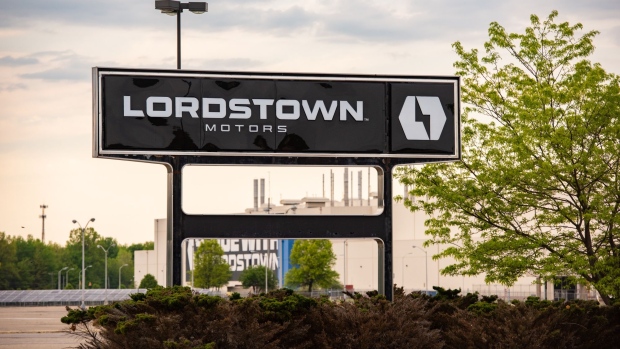May 13, 2022
Electric-Vehicle Startups Run Low on Cash After SPAC Deals
, Bloomberg News

(Bloomberg) --
Several electric-vehicle startups that went public by merging with special purpose acquisition companies, or SPACs, the last two years made some nervy disclosures this week.
Canoo, the buzzy electric-van outfit that drew interest from Apple’s car team back in 2020, issued a going concern warning that there’s substantial doubt as to whether it has enough cash to keep operating for another year.
Lordstown Motors completed the sale of its electric pickup plant to Foxconn only after multiple delays and an admission it didn’t have enough money to refund the iPhone assembler if the deal fell through.
And Fisker, which is six months away from delivering its debut electric sport utility vehicle, reiterated belief that it has sufficient cash for at least the next year with the caveat that it may need more due to changed business conditions.
All of this has understandably given investors pause in an equity market where the tide is clearly going out. The tech-heavy S&P 500 Index is down 18% this year, and some post-SPAC EV stocks have fallen much further. The rout doesn’t bode well for the near-term ability for companies with little or no revenue to raise more money and get their vehicles to market.
An environment of rising interest rates and less-friendly capital markets is particularly problematic for EV companies because of how much money they were always going to need to make it in the long run. Consider this comparison, courtesy of Jefferies: Tesla has raised $23.5 billion — and generated almost that much in gross earnings — to get where it is today. Excluding outlier Lucid, the 11 EV companies that went public via SPAC since 2020 combined have raised roughly $7.5 billion.
Tesla is, of course, not the only well-resourced competition that awaits these companies. Rivian raised almost $12 billion from its initial public offering in November and has brought in almost $25 billion in total capital. General Motors and Ford are pumping out high-margin pickups and SUVs to fund the flotilla of EVs they’ll have hitting the road in the coming years.
Lucid has raised $8 billion and has a flush backer in Saudi Arabia’s sovereign wealth fund. That’s a good thing, because Bloomberg Intelligence estimates the carmaker will burn through almost $8 billion this year and next, and may need to raise at least another $2.5 billion for additional wiggle room. BI’s forecasts suggest Fisker, Lordstown, Canoo and Nikola risk exhausting their respective cash balances by the end of next year, and that they too could use more capital.
Several of these startups are trying out an asset-light business model to minimize investment. Fisker and Lordstown are both relying on Foxconn to do assembly. Mega-supplier Magna’s contract-manufacturing subsidiary also will build vehicles for Fisker. Nikola’s first trucks are being built with partner Iveco, the commercial-vehicle unit of CNH Industrial. These approaches will reduce costs, but won’t erase them.
Fisker, Lordstown, Canoo and Nikola currently have a total of $1.4 billion cash on hand. Raising more will be difficult because they don’t own much to secure asset-backed loans. Convertible debt is currently pricey. Equity is the way out, but again, their shares have been getting hammered. If they can get deals done to sell more stock, it will be dilutive to existing shareholders.
And for each of these companies, we’re talking about money to produce and support the first vehicles they’re trying to get out of factory doors. To make it big over the long term, they need Tesla money. This isn’t the kind of market from which they’re going to get it.
Like getting this newsletter? Subscribe to Bloomberg.com for unlimited access to trusted, data-driven journalism and subscriber-only insights.
©2022 Bloomberg L.P.





